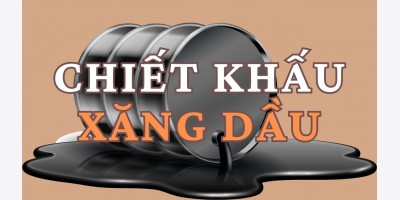Giá dầu giảm do căng thẳng nguồn cung lắng dịu
Trong phiên châu Á sáng nay, giá dầu thô tiếp tục giảm nhẹ sau khi trượt trong phiên Mỹ tối qua do những quan ngại vá» nguồn cung Ä‘ang dần lắng dịu trÆ°á»›c sá»± cam kết của Ả Ráºp Saudi sẽ bù đắp vào nguồn cung bị thiếu hụt từ Libya.
Giám đốc Ä‘iá»u hành công ty dầu khí nhà nÆ°á»›c Saudi Arabian Oil Co - Khalid Al-Falih nói rằng quốc gia Trung Äông này sẵn sàng bù đắp cho tất cả sá»± thiếu hụt dầu trên thế giá»›i.
Tim Evans, chuyên gia phân tích năng lượng của Citi Futures Perspective tại New York nói, sá»± Ä‘e dá»a đối vá»›i nguồn cung vá» tổng thể không còn nguy cấp nhÆ° hồi tuần trÆ°á»›c. Còn tình hình biến Ä‘á»™ng chính trị và xã há»™i ở Libya Ä‘ang dần ổn định hÆ¡n, vì váºy sản lượng dầu của nÆ°á»›c này sẽ không còn bị cắt giảm thêm nữa.
Giá dầu thô WTI giao kỳ hạn tháng 04 vào lúc 7h37 (giá» Việt Nam) giảm 5 cent còn 96,92 USD/thùng. Äóng cá»a phiên Mỹ tối qua, giá dầu chốt ở mức 96,97 USD/thùng, giảm 91 cent so vá»›i Ä‘óng cá»a hôm thứ Sáu tuần trÆ°á»›c.
Trong khi giá dầu thô Brent giao tháng 04 cÅ©ng trượt 34 cent (0,3%) xuống 111.80 USD/thùng trong ngày hôm qua.
T. Boone Pickens, ông trùm đầu tÆ° dầu má» phát biểu trong cuá»™c phá»ng vấn của Bloomberg Television rằng giá dầu khả năng sẽ tăng và dao Ä‘á»™ng trong vùng 120-150 USD/thùng do những căng thẳng ở vùng Trung Äông.
Oil Trades Near One-Week Low After Saudi Arabia Offers Supplies
Share Business ExchangeTwitterFacebook| Email | Print | A A A
March 1 (Bloomberg) -- Oil traded near a one-week low in New York after Saudi Arabia offered to make up for supplies lost because of unrest in Libya, which the world’s biggest shipbroker said is still exporting crude.
Futures slid 0.9 percent yesterday after Saudi Arabian Oil Co. Chief Executive Officer Khalid Al-Falih said the kingdom is ready to cover a shortfall. Most ships picking up Libyan cargoes have done so successfully in the past week, said Bob Knight, head of tankers at Clarkson Plc.
“The threat to supply overall doesn’t look as dangerous as it did last week,” said Tim Evans, an energy analyst at Citi Futures Perspective in New York. “Events in Libya seem to be moving steadily in one direction, with oil production apparently not dropping further and some exports being loaded.”
Crude for April delivery was at $96.95 a barrel, down 2 cents, in electronic trading on the New York Mercantile Exchange at 10:37 a.m. Sydney time. Yesterday, the contract fell 91 cents to $96.97, the lowest since Feb. 22. Prices gained 5.2 percent last month and are 23 percent higher than a year ago.
Brent crude for April settlement slipped 34 cents, or 0.3 percent, to $111.80 a barrel on the London-based ICE Futures Europe exchange yesterday. Prices gained 11 percent last month.
The U.S. and European nations solidified their support for Libya’s opposition, promising humanitarian aid and planning for a no-fly zone, as leader Muammar Qaddafi declared that “my people love me.”
Libyan Output
The Organization of Petroleum Exporting Countries’ crude- oil output fell in February as Libya’s production dropped to an eight-year low, slipping 200,000 barrels a day to 1.385 million, according to a Bloomberg News survey. It’s the lowest level since January 2003
Total OPEC production slipped 285,000 barrels, or 1 percent, to an average 29.11 million barrels a day, the survey of oil companies, producers and analysts shows. Daily output by members with quotas, all except Iraq, decreased 335,000 barrels to 26.515 million, 1.67 million above their target.
In Oman, the largest Middle Eastern producer outside OPEC, two demonstrators were killed and several wounded in clashes with police on Feb. 27, hospital and government officials said.
Oil prices may rise to between $120 and $150 a barrel because of tensions in the Middle East, T. Boone Pickens, the billionaire energy investor, said in a Bloomberg Television interview on “Surveillance Midday” with Tom Keene.
To contact the reporters on this story: Margot Habiby in Dallas at mhabiby@bloomberg.net; Ben Sharples in Melbourne at bsharples@bloomberg.net








